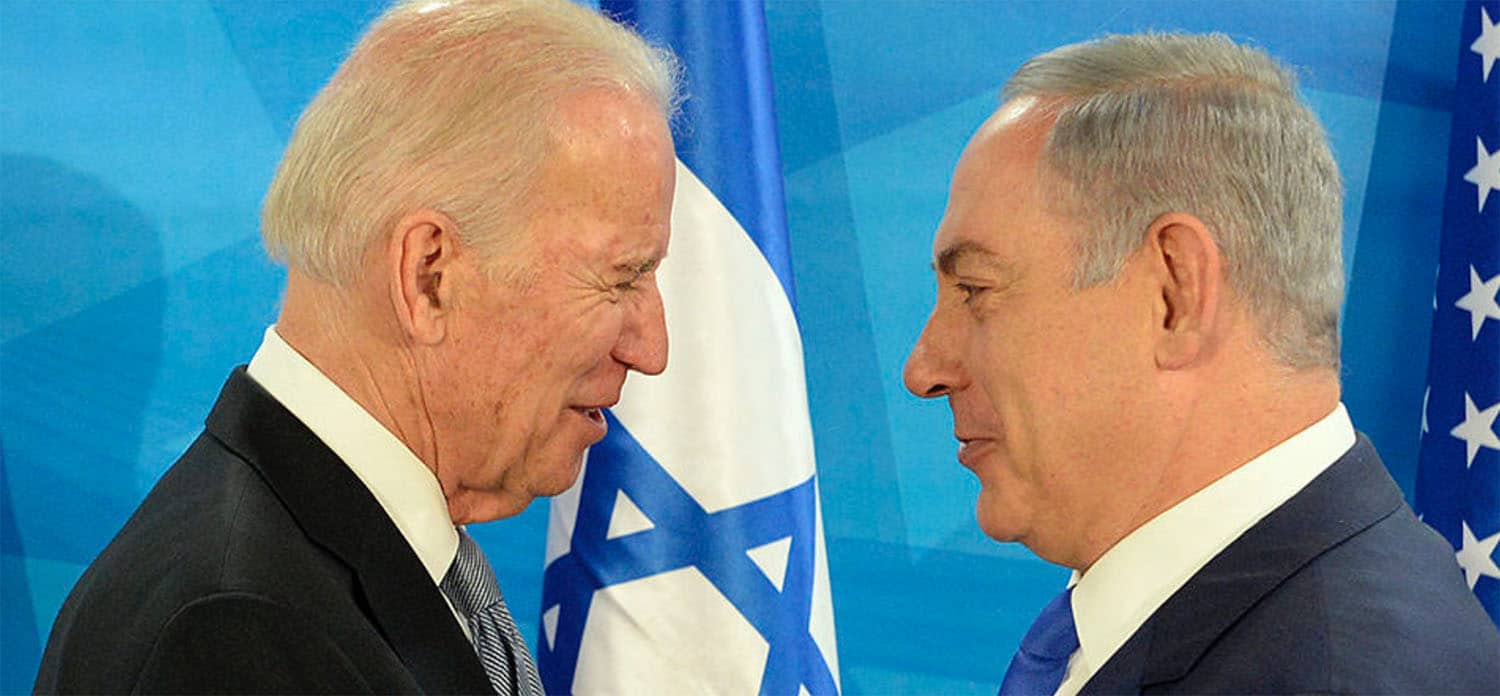
It’s rare for a U.S. President to begin his State of the Union address by talking about foreign policy: historically, it only happens in a time of international crisis. But that’s exactly what Joe Biden did last week.
American voters usually want to hear about issues that impact their lives here at home and American presidents, especially in an election year, usually comply. But given the fragile nature of the hostage negotiations, the uncertainty of whether a temporary ceasefire could be reached before Ramadan, and the growing tensions between U.S. and Israeli leaders over the next steps toward ending this crisis, Biden beginning his speech by talking directly to his audience about the war in Gaza would have been an understandable decision. Early leaks out of the White House suggested just such an emphasis.
But Biden began his speech by talking about the war in Ukraine, and did not get to Israel and Gaza for almost an hour, at roughly 10:30 PM on the East Coast and long after much of his audience had moved on for the night. For a president seeking reelection, this ordering made strategic sense. Biden’s first three topics were Ukraine, the Jan. 6 riots and abortion rights, three issues on which he and Donald Trump have major disagreements. The nation’s voters are strongly aligned with Biden on each of these matters, so drawing sharp distinctions with Trump from the outset was smart politics, especially given the way Gaza so sharply divides his Democratic Party.
After starting off with three popular issues, Biden then buried the most controversial topic. He did not discuss Israel until much later in the speech, and after briefly condemning Hamas and demanding the hostages’ release, Biden then quickly pivoted to a more extensive criticism of Israel for not being attentive enough to the humanitarian challenges in Gaza. The president said the right things about Hamas, as he has for several months, but he focused much greater outrage on Israel over conditions for Palestinians.
Mincing no words, Biden went right at Israeli Prime Minister Benjamin Netanyahu: “To the leadership of Israel I say this: Humanitarian assistance cannot be a secondary consideration or a bargaining chip,” he said. “Protecting and saving innocent lives has to be a priority.”
Unlike at the beginning of the war, when Biden agreed that it was necessary for Israel to remove Hamas from power, he made no such reference in the State of the Union address.
Unlike at the beginning of the war, when Biden agreed that it was necessary for Israel to remove Hamas from power, he made no such reference in the State of the Union address, saying only that Israel has “a right to go after” the terrorist group. He also said: “Hamas could end this conflict today by releasing the hostages, laying down arms, and surrendering those responsible for Oct. 7.” That is a much lower bar for ending the conflict than the removal of Hamas and has created even more distance between Biden and Netanyahu.
Biden’s targeting goals in the speech had become clear earlier that day, when the White House let it be known that he would propose the construction of a pier on the Gaza coast to allow aid to be shipped into the region by boat. This early announcement was designed to send a message to Democrats who have been critical for Biden’s strong support of Israel throughout the war. The president’s advisors know that he cannot win in November if young people, voters from minority communities and other progressives stay home, and the large number of “Uncommitted” voters in some primaries has reinforced the urgency of bringing these unhappy party regulars back into the fold. So emphasizing aid to Gaza over consequences for Hamas, the White House signaled to the Democratic base that Biden was responsive to their concerns.
The president reinforced that message a few days later when he told a cable television interviewer that Netanyahu was “hurting Israel more than he was helping.” Netanyahu quickly returned fire by saying that Biden was wrong, pointing to strong public support in Israel for his preferred course.
But Biden is not running in Israel. So we should expect the rift between the two men to continue to grow, at least until Election Day.
Dan Schnur is the U.S. Politics Editor for the Jewish Journal. He teaches courses in politics, communications, and leadership at UC Berkeley, USC and Pepperdine. He hosts the monthly webinar “The Dan Schnur Political Report” for the Los Angeles World Affairs Council & Town Hall. Follow Dan’s work at www.danschnurpolitics.com.


































 More news and opinions than at a Shabbat dinner, right in your inbox.
More news and opinions than at a Shabbat dinner, right in your inbox.